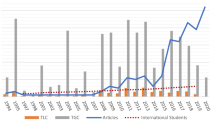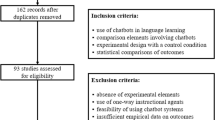Abstract
This paper proposes that the Hegelian conceptualization of habit that differs from the traditional ones is able to resolve the tensions between the mechanistic behavioral and social interactional views on second language (L2) learning. Hegel treats habit as comprising dexterous habit and ethical habit or customs. In the 1970s L2 learning was regarded as formation of mechanistic habit. With L2 researchers’ increasing awareness of the social nature of L2 learning, the behaviorist view was dismissed and was replaced by socio-cultural theories. There is a more recent “social turn” in L2 learning research which puts an even stronger emphasis on social interactions in L2 learning. Hegel’s dual-nature conceptualization of habit not only can resolve the tensions caused by the antagonistic behavioral and social perspectives on L2 which has been existing among L2 researchers but also offers new agenda items for L2 learning such as reflectiveness, morality, and self-feeling reduction and regulation functions of L2 learning. Hegel’s views on morality can also balance the monolingual perspectives on culture learning prevailing in the L2 field.
Similar content being viewed by others
References
Baker, W. (2011a). From cultural awareness to intercultural awareness: culture in ELT. ELT Journal, 66(1), 62–70. https://doi.org/10.1093/elt/ccr017.
Baker, W. (2011b). Intercultural awareness: modelling an understanding of cultures in intercultural communication through English as a lingua franca. Language and Intercultural Communication, 11(3), 197–214. https://doi.org/10.1080/14708477.2011.577779.
Block, D. (2003). The social turn in second language acquisition. Edinburgh: Edinburgh University Press.
Borchers, D. (2016). Marking anteriority, perfect and perfectivity in languages of mainland Southeast Asia–concepts, linguistic area. In B. Lewandowska-Tomaszczyk (Ed.), Conceptualizations of time (pp. 243–272). Amsterdam: John Benjamins.
Burns, A. (1998). Teaching speaking. Annual Review of Applied Linguistics, 18, 102–123. https://doi.org/10.1017/S0267190500003500.
Byram, M., & Feng, A. (2004). Culture and language learning: teaching, research and scholarship. Language Teaching, 37(3), 149–168. https://doi.org/10.1017/S0261444804002289.
Chomsky, N. (1965). Aspects of the theory of syntax. Mass: MIT Press.
Chomsky, N. (2006). Language and mind (3rd ed.). Cambridge: Cambridge University Press.
Cross, J. (2011). Social-cultural-historical contradictions in an L2 listening lesson: a joint activity system analysis. Language Learning, 61(3), 820–867. https://doi.org/10.1111/j.1467-9922.2011.00658.x.
Crowther, D., Trofimovich, P., Isaacs, T., & Saito, K. (2015). Does a speaking task affect second language comprehensibility? The Modern Language Journal, 99(1), 80–95. https://doi.org/10.1111/modl.12185.
Dietrich, R., Klein, W., & Noyau, C. (1995). The acquisition of temporality in a second language. Amsterdam: John Benjamins.
Filipović, L., & Jaszczolt, K. M. (Eds.). (2012). Space and time in languages and cultures: language, culture, and cognition. John Benjamins: Amsterdam / Philadelphia.
Flowerdew, J., & Miller, L. (2005). Second language listening: theory and practice. Cambridge: Cambridge University Press. https://doi.org/10.1017/CBO9780511667244.
Forman, D. (2010). Second nature and spirit: Hegel on the role of habit in the appearance of perceptual consciousness. The Southern Journal of Philosophy, 48(4), 325–352. https://doi.org/10.1111/j.2041-6962.2010.00037.x.
Fotos, S. (2002). Structure-based interactive tasks for the EFL grammar learner. In E. Hinkel & S. Fotos (Eds.), New perspectives on grammar teaching in second language classroom (pp. 135–154). Mahwah: Lawrence Erlbaum Associates.
Grabe, W. (1991). Current developments in second language reading research. TESOL Quarterly, 25(3), 375–406.
Grabe, W. (2009). Teaching and testing reading. In M. H. Long & C. J. Doughty (Eds.), Handbook of language teaching (pp. 441–462). Malden: Wiley-Blackwell. https://doi.org/10.1002/9781444315783.ch24.
Grabe, W., & Kaplan, R. (Eds.). (1996). Theory and practice of writing: an applied linguistic perspective. London: Longman.
Grabe, W., & Stoller, F. L. (2013). Teaching and researching reading (2nd ed.). London: Routledge.
Hedge, T. (2000). Teaching and learning in the language classroom. Oxford: Oxford University Press.
Hegel, G. W. F. (1970a). Philosophy of nature: being part two of the Encyclopaedia of Philosophical Sciences (A. V. Miller, Trans.) Oxford: Clarendon Press.
Hegel, G. W. F. (1970b). Werke. E. Moldenhauer & K. Markus (Eds.), Frankfurt: Suhrkamp.
Hegel, G. W. F. (1971). Hegel’s philosophy of mind: being part three of the encyclopaedia of philosophical sciences. (W. Wallace, Trans.) Oxford: Clarendon Press.
Hegel, G. W. F. (1977). Phenomenology of the spirit (A. V. Miller, Trans.) Oxford: Oxford University Press.
Hegel, G. W. F. (2007). Lectures on the philosophy of spirit 1827-8. (R. Williams, Trans.) Oxford: Oxford University Press.
Lazaraton, A. (2001). Teaching oral skills. In M. Celce-Murcia (Ed.), Teaching English as a second or foreign language (pp. 103–116). Boston: Heinle and Heinle.
Lewis, M. (1986). The English verb: an exploration of structure and meaning. London: Language Teaching Publications.
Lewis, T. A. (2007–8). Speaking of habits: the role of language in moving from habit to freedom. The Owl of Minerva, 39(1–2), 25–53. https://doi.org/10.5840/owl2007/2008391/22.
Long, M. H. (1991). Focus on form: a design feature in language teaching methodology. In K. de Bot, R. Ginsberg, & C. Kramsch (Eds.), Foreign language research in cross-cultural perspective (pp. 39–52). Amsterdam: John Benjamins.
Magrì, E. (2016). The place of habit in Hegel’s psychology. In S. Herrmann-Sinai & L. Ziglioli (Eds.), Hegel’s philosophical psychology (pp. 74–90). London: Routledge. https://doi.org/10.1017/hgl.2016.65.
McCarthy, M., & Carter, R. (2002). Ten criteria for a spoken grammar. In E. Hinkel & S. Fotos (Eds.), New perspectives on grammar teaching in second language classroom (pp. 51–75). Mahwah: Lawrence Erlbaum Associates.
McCumber, J. (1990). Hegel on habit. The Owl of Minerva, 21(2), 155–165. https://doi.org/10.5840/owl19902121.
Nation, I. S. P. (2002). Best practice in vocabulary teaching and learning. In J. C. Richards & W. A. Renandya (Eds.), Methodology in language teaching: An anthology of current practice (pp. 267–272). New York: Cambridge University Press.
Nation, I. S. P. (2005). Teaching and learning vocabulary. In E. Hinkel (Ed.), Handbook of research in second language teaching and learning (pp. 581–595). New York: Routledge.
Nation, I. S. P. (2008). Teaching vocabulary: strategies and techniques. Boston: Heinle.
Nation, I. S. P., & Chung, T. (2009). Teaching and testing vocabulary. In M. H. Long & C. J. Doughty (Eds.), Handbook of language teaching (pp. 543–559). West Sussex: Wiley-Blackwell.
Novakovic, A. (2017). Hegel’s anthropology. In D. Moyar (Ed.), The Oxford handbook of Hegel (pp. 407–423). Oxford: Oxford University Press.
Olin-Scheller, C., & Tengberg, M. (2017). Teaching and learning critical literacy at secondary school: the importance of metacognition. Language and Education, 31(5), 428–431. https://doi.org/10.1080/09500782.2017.1305394.
Oxford, R., & Amerstorfer, C. M. (2018). Language learning strategies and individual learner characteristics: situating strategy use in diverse contexts. London: Bloomsbury Academic.
Oxford, R., & Gkonous, C. (2018). Interwoven: culture, language, and learning strategies. Studies in Second Language Learning and Teaching, 2, 403–426. https://doi.org/10.14746/ssllt.2018.8.2.10.
Phillipson, R. (1992). Linguistic imperialism. Oxford: Oxford University Press.
Phillipson, R. (2009). Linguistic imperialism continued. New York and London: Routledge.
Raimes, A. (1991). Out of the woods: emerging traditions in the teaching of writing. TESOL Quarterly, 25, 407–430. https://doi.org/10.2307/3586978.
Rose, H., & Galloway, N. (2019). Global Englishes for language teaching. Cambridge: Cambridge University Press. https://doi.org/10.1017/81316678343.
Rost, M. (2011). Teaching and researching listening (2nd ed.). England: Longman.
Siegel, J. (2014). Exploring L2 listening instruction: examinations of practice. English Language Teaching Journal, 68(1), 22–30. https://doi.org/10.1093/elt/cct058.
Smith, F. (1994). Understanding reading (5th ed.). Hillsdale: Lawrence Erlbaum.
Soruç, A., & Griffiths, C. (2015). Identity and the spoken grammar dilemma. System, 50, 32–42. https://doi.org/10.1016/j.system.2015.03.007.
Testa, I. (2013). Hegel’s naturalism or soul and body in the Encyclopedia. In D. S. Stern (Ed.), Essays on Hegel’s philosophy of subjective spirit (pp. 19–35). New York: State University of New York Press. https://doi.org/10.1093/acprof:oso/9780199860791.001.0001.
Vandergrift, L., & Goh, C. C. M. (2012). Teaching and learning second language listening. New York: Routledge.
Vandergrift, L., & Tafaghodtari, M. H. (2010). Teaching L2 learners how to listen does make a difference: an empirical study. Language Learning, 60(2), 470–497. https://doi.org/10.1111/j.1467-9922.2009.00559.x.
Vygotsky, L. S. (1978). Mind in society: the development of higher psychological processes. Cambridge: Harvard University Press.
Vygotsky, L. S. (1987). Thinking and speech. In R. W. Rieber & A. S. Carton (Eds.), The collected works of L. S. Vygotsky: Volume 1, Problems of general psychology (pp. 39–285). New York: Plenum Press.
Waters, A. (2012). Trends and issues in ELT methods and methodology. ELT Journal, 66(4), 440–449.
Wenning, M. (2013). Awakening from madness: the relationship between spirit and nature in light of Hegel’s account of madness. In D. S. Stern (Ed.), Essays on Hegel’s philosophy of subjective spirit (pp. 107–119). New York: State University of New York Press. https://doi.org/10.5840/hsaproceedings2013219.
Author information
Authors and Affiliations
Corresponding author
Ethics declarations
Conflict of Interest
The author declares that he has no conflict of interest.
Additional information
Publisher’s Note
Springer Nature remains neutral with regard to jurisdictional claims in published maps and institutional affiliations.
Rights and permissions
About this article
Cite this article
Wu, M.Mf. Second Language Learning as Habit Formation from a Hegelian Perspective. Hu Arenas 3, 391–403 (2020). https://doi.org/10.1007/s42087-019-00088-4
Received:
Revised:
Accepted:
Published:
Issue Date:
DOI: https://doi.org/10.1007/s42087-019-00088-4




